Top 20 Indian Authors and Their Books - Must Read
Explore the top 20 Indian authors and their must-read books on Frontlist. Delve into diverse literary treasures today!on Feb 10, 2021

Books come as life savers in every situation. A long journey, a sleepless night or a lazy day, a book can be your companion in every mood. Cicero said, “A room without books is like a body without a soul.” And we couldn’t agree more. There is nothing stronger than the power of words. It always takes a lot of time to decide which book to pick as there are thousands of options available. So save your time as we present to you the list of 20 gems of Indian English literature that you must read-
1. Mahatma Gandhi – The Story Of My Experiments With The Truth
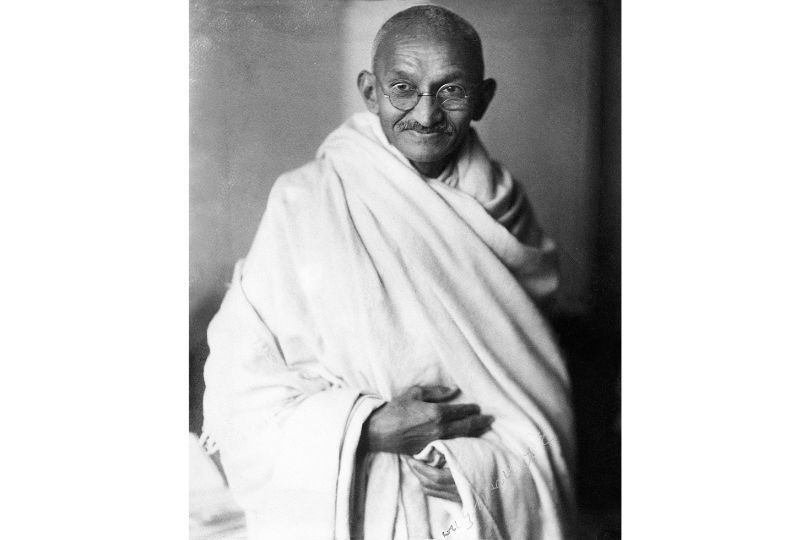
Mahatma Mohandas Karamchand Gandhi has always been a very prominent figure in Indian history. From his unbeatable spirit to inspiring courage, from various controversies to his life as the father of the nation, Gandhi has always been an interesting, inspiring and impressive personality to read about. If you want to know all about Gandhi and his journey, you cannot miss out on reading ‘My Experiments with the Truth’, his autobiography that covers his life from early childhood till 1921. The introduction mentions how Gandhi resumed writing at the insistence of a fellow prisoner at Yerwada Central jail. The autobiography was written as weekly journals and then compiled and published as a book. From his childhood memories, his experiments with eating meat, smoking, drinking and stealing to the demise of his father, the book captures many unknown instances of Gandhi’s life.
2. R.K. Narayan – The Guide
.jpg)
R.K Narayan is best known for stories based in and around the fictional village of Malgudi. The Guide is yet another story set up in Malgudi. R.K. Narayan won the Sahitya Akademi Award for the book in 1960. The Guide is the story of a tour guide who transforms himself into a spiritual Guru and then the greatest holy man of India. The book was also adapted as a film which starred the legendary actor Dev Anand.
3. Rohinton Mistry – A Fine Balance
.jpg)
This is the second novel by Mistry published in 1995 and, like his first novel, Such A Long Journey, this novel too received wide acclaim across the globe. A fine balance revolves around various characters in Mumbai (then Bombay) during the time of turmoil and government emergencies. The story of friendship and love that progresses among the characters of the book will keep you hooked till the end.
4. Salman Rushdie – Midnight’s Children
.jpg)
Salman Rushdie book Midnight’s Children portrays the journey of India from British rule to independence and then partition. The book received a great response, winning the Booker Prize in 1981 and the “Booker of Bookers” Prize (commemorating the best among all the Booker winners) twice – in 1993 and 2008! The book travels to various parts of the country including Kashmir, Agra and Mumbai and incorporates many actual historic events. The book was also included in the List of 100 Best Novels of all time.
5. Jhumpa Lahiri – The Interpreter Of Maladies
.jpg)
This is a collection of nine stories by Jhumpa Lahiri. The stories are based on lives of Indians and Indian Americans who are lost between the two cultures. The book was published in 1999 and won the Pulitzer Prize for Fiction and the Hemingway Foundation/PEN Award in the year 2000 and has sold over 15 million copies worldwide.
6. Vikram Seth – A Suitable Boy
.jpg)
Published in 1993, this 1349-pages-long-book is one of the longest novels ever published in a single volume in the English Language. The story focuses on India post-partition as a family looks for a suitable boy to marry their daughter. Vikram Seth’s follow up book A Suitable Girl is expected to be released in 2016.
7. Arundhati Roy – God of Small Things
.jpg)
The debut novel by Arundhati Roy, which took almost four years to finish is a story of fraternal twins and how small things make a large difference in people’s lives and behavior. The book was awarded the Booker Prize in 1997 and is Roy’s only published novel so far. The story narrated in third person is set in Kerala, and takes place in 1969.
8. Amitav Ghosh – The Glass Palace
.jpg)
Amitav Ghosh – The Glass Palace book won Grand Prize for Fiction at the Frankfurt International e-Book Awards in 2001. The story is set in Burma and focuses on various issues during the British invasion in 1885. The novel beautifully portrays the circumstances and incidents that made Burma, India and Malaya what they are today. This story of the empire, love and the changing society is definitely worth reading.
9. Kiran Desai – The Inheritance of Loss
.jpg)
The book, written over a period of seven years after her first book, portrays different conflicts between various Indian groups, in the past and at present. It shows how people find the English lifestyle fascinating and also captures the perception of various opportunities in the US. The book won Kiran Desai various awards including the Man Booker Prize in 2006 and the National Book Critics Circle Fiction Award.
10. Mulk Raj Anand – The Private Life of an Indian Prince
.jpg)
Mulk Raj Anand – The Private Life of an Indian Prince book was published in 1953 and is considered as one of the Anand’s finest works. The story revolves around abolition of princely states in India, focusing on the life of a King and his fascination towards one of his mistresses. The story has some real life incidents which are beautifully converted into fiction.
11. Vikram Chandra – Red Earth and Pouring Rain
.jpg)
Red Earth and Pouring Rain won the 1996 Commonwealth Writers’ Prize for Best First Book. The novel is inspired by the biography of James Skinner, a legendary nineteenth-century Anglo-Indian soldier. It also combines Indian myths and history into a story of three college kids. Written in the pattern of a story within a story, the book relates the tale of two characters and has a mythological touch with a modern subplot.
12. Suketu Mehta – Maximum City
.jpg)
This New York based writer was born in India and was raised in Mumbai in his early years. He penned down his experiences in Mumbai in his incredible work Maximum City, published in 2004, and a Pulitzer Prize finalist in 2005. The book is a mix of travel writing, a journal, a socio-political analysis of people and wonders of Mumbai. It won the 2005 Vodafone Crossword Book Award. The Economist named Maximum City as one of its books of the year for 2004. It was also shortlisted for the 2005 Samuel Johnson Prize.
13. Rabindranath Tagore – Gitanjali
.jpg)
This collection of poems by Rabindranath Tagore was originally published in Bengali in August 1910 and had 157 poems. The English version has 103 poems. The collection includes Tagore’s translation of 53 original Bengali poems and 50 other poems from his drama Achalayatan. The poems are mostly of a spiritual bent, though some of the pieces also have a hint of nature. This collection won the Nobel prize for Tagore in 1913.
14. Mitra Phukan – The Collector’s Wife
.jpg)
This book is set up against Assam’s insurgencies and is the first English novel to be published by a writer from North-East India. The story talks about the changes brought into the lives of people living in a small town of Assam by the militants. The plot revolves around the life of a girl who is married to a district collector. The natural surroundings and characters are described very well and give a great insight into the life of a small town in Assam.
15. Khushwant Singh – Train to Pakistan
.jpg)
Khushwant Singh book Train To Pakistan is a compelling portrayal of the partition of India. The book touches upon the human angle and brings out the sense of reality and horror. The way Singh has described a village where a peaceful and loving community transforms into one driven by hatred and fear is remarkable. The description of the characters gives a lift to the book and makes it all the more interesting to read. Published in 1956, the book has also been translated into Tamil and has been adapted into a film with the same name.
16. Nayantara Sehgal – Rich Like Us
.jpg)
Rich Like Us is a political fiction novel set during a time of political and social change between 1932 and the mid-1970s. Sehgal won the 1986 Sahitya Akademi Award for English for this book. The plot runs along the parallel tracks of two very different women and how the “emergency” changed their lives. The backdrop is set at the time when Indira Gandhi declared martial law in India.
17. Anita Desai – In Custody
.jpg)
The book portrays the life of a Hindi teacher whose heart lies in Urdu poetry by Anita Desai. A heart-touching and funny story takes a twist when the lead character, Deven, in an attempt to escape from his monotonous life, grabs an opportunity to interview India’s greatest Urdu poet , but it doesn’t turn out as expected. The book was shortlisted for the Booker Prize in 1984.
18. Sunetra Gupta – The Glassblower’s Breath
.jpg)
The Glassblower’s Breath talks about the journey of a woman and her emotional, intellectual and sexual experiences. This story of a single day mixes fantasies, memories, dreams, ambitions, temptations and thoughts of a woman who marries a rich man, but struggles to conform to society’s diktats. The book was published in 1993, and received great reviews.
19. A. K. Ramanujan – The Collected Poems
.jpg)
The book is a collection of poems that includes poems out of the three books he published during his lifetime. He was awarded the Sahitya Akademi Award in 1999 for this compilation. Ramanujan’s various books of Kannada poetry have been translated in English. He was awarded Padma Shri in 1976.
20. Nirad C. Chaudhuri, The Autobiography of an Unknown Indian
.jpg)
This book made Nirad C. Chaudhari one of India’s greatest writers. Published in 1951, the book describes the life of the writer from the time he was born in 1897 in Bangladesh to his youth in Calcutta. The book is considered as Nirad’s masterpiece, beautifully capturing every minute detail of his surroundings and of modern India. It has received global acclaim over a period of time. Winston Churchill considered it one of the best books he had ever read. In 1998, it was included as one of the few Indian contributions in The New Oxford Book of English Prose. Source: The Better India


.jpg)






.jpg)

.jpg)
.jpg)
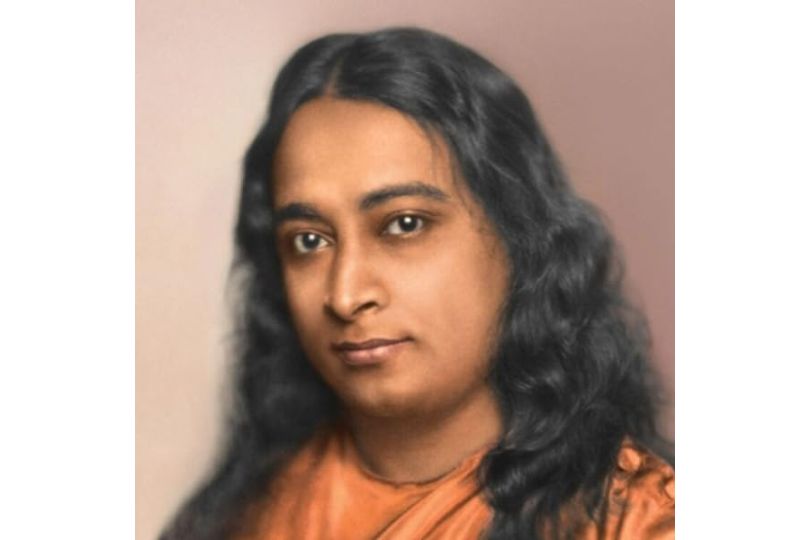
.jpg)
.jpg)
.jpg)


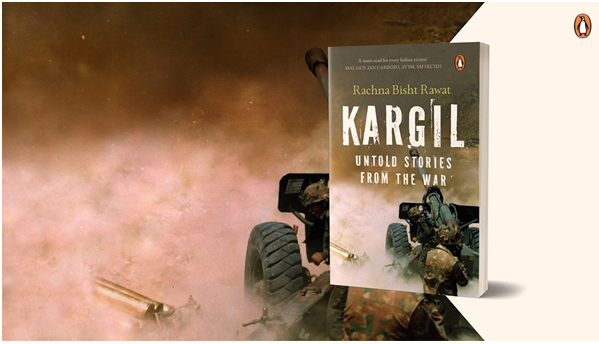
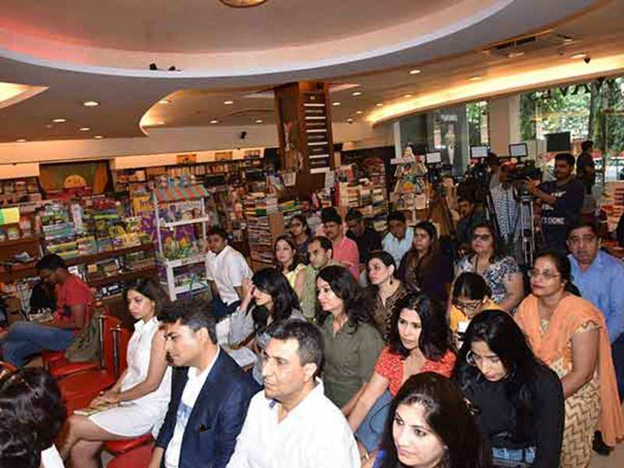


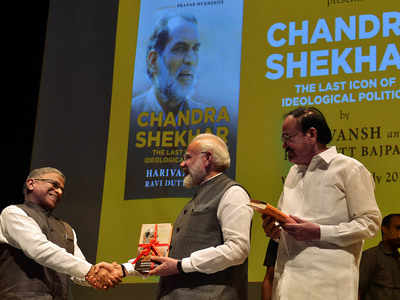



Sorry! No comment found for this post.